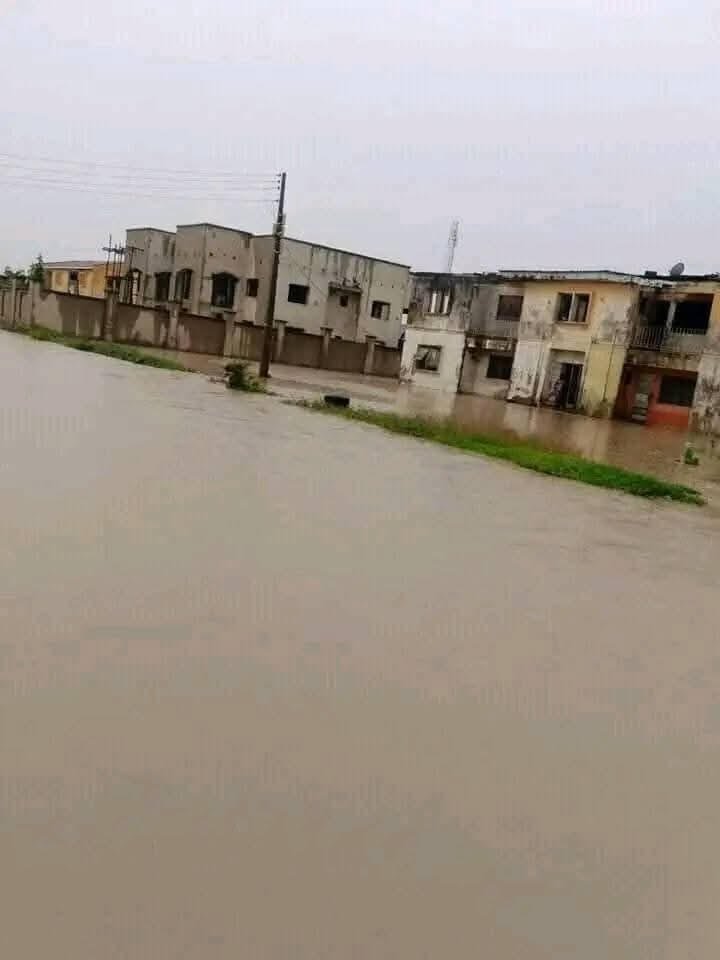The World Bank has said there is a possibility that the monetary policy tightening by the Central Bank of Nigeria (CBN) will not address the ravaging inflation in the country.
The World Bank made the disclosure in its global economic prospects report released on Wednesday.
It said one of the risks of Nigeria’s economic growth is the failure of tightening policies on inflation.
The tightening of the monetary policy rate (MPR) is the increase of interest rate to control soaring inflation.
Meanwhile, the federal government has indicated that its hoping for over $500m World Bank loan to fund rural roads across Nigeria.
This request was contained in the final draft of the Resettlement Policy Framework for the Nigeria Rural Access and Agricultural Marketing Project Scale-UP implemented by the Federal Ministry of Agriculture and Rural Development.
The international lender said the fund was expected to address the dire need for better connectivity in rural Nigeria, where 92 million people currently lack access to good roads.
Pundits say when interest rates are high, manufacturers, contractors, among others, find it difficult to borrow, and by implication, low productivity occasioned by job losses.
Since the resumption of the Monetary Policy Committee (MPC) meeting this year, interest rates have increased from 22.75 per cent in February to 26.25 per cent in May – a total increase of 750 basis points.
‘Risks to Nigeria’s growth outlook are substantial’
The World Bank in its latest report noted that: “Risks to Nigeria’s growth outlook are substantial, including the possibility that the tightening of monetary policy stops short of reining in inflation.”
The report also predicted Nigeria’s economic growth rate outlook for the rest of 2024 and 2025 to remain the same. “Growth in Nigeria is projected to pick up to 3.3 per cent this year and 3.5 per cent in 2025,” the World Bank said.
“After the macroeconomic reforms’ initial shock, economic conditions are expected to gradually improve, resulting in sustained, but still-modest growth in the non-oil economy.
“In addition, the oil sector is expected to stabilise as production somewhat recovers”, it stressed.
FG eyes $500m World Bank loan for rural roads
The Federal Government is seeking a $500m loan from the World Bank to enhance rural road infrastructure and agricultural marketing across the federation.
The RAAMP-SU project aims to improve rural access and climate resilience, thereby boosting agricultural potential and marketing prospects for agrarian communities. This, in turn, will contribute to better livelihoods for the rural populace.
The project’s objectives include improving rural access and climate resilience of communities in served rural areas, strengthening institutional capacity for rural road network management, and fortifying the financial and institutional foundations for sustainable management of both rural and state road networks.
The RAAMP-SU initiative is an extension of the earlier Rural Access and Agricultural Marketing Project, supported by the World Bank and the French Development Agency. The project is led by the Federal Department of Rural Development within the Federal Ministry of Agriculture and Rural Development, with oversight by the Federal Project Management Unit.
The policy document noted: “Nigeria’s road network is relatively extensive, encompassing approximately 194,000 kilometres of roads. This includes 34,000 kilometres of federal roads, 30,000 kilometres of state roads, and 130,000 kilometres of registered rural roads. The road density equates to about 0.21 kilometres of roads per square kilometre.
“Despite this relatively high road density, the rural accessibility index for Nigeria (defined as the proportion of the rural population residing within 2 kilometres of an all-weather road) stands at a mere 25.5 per cent, resulting in approximately 92 million rural inhabitants lacking connectivity.
“Rural access is particularly restricted in areas densely populated by the economically disadvantaged. These factors underscore the imperative to expand and enhance the rural road network, as well as conserve rural road and transport assets.”



